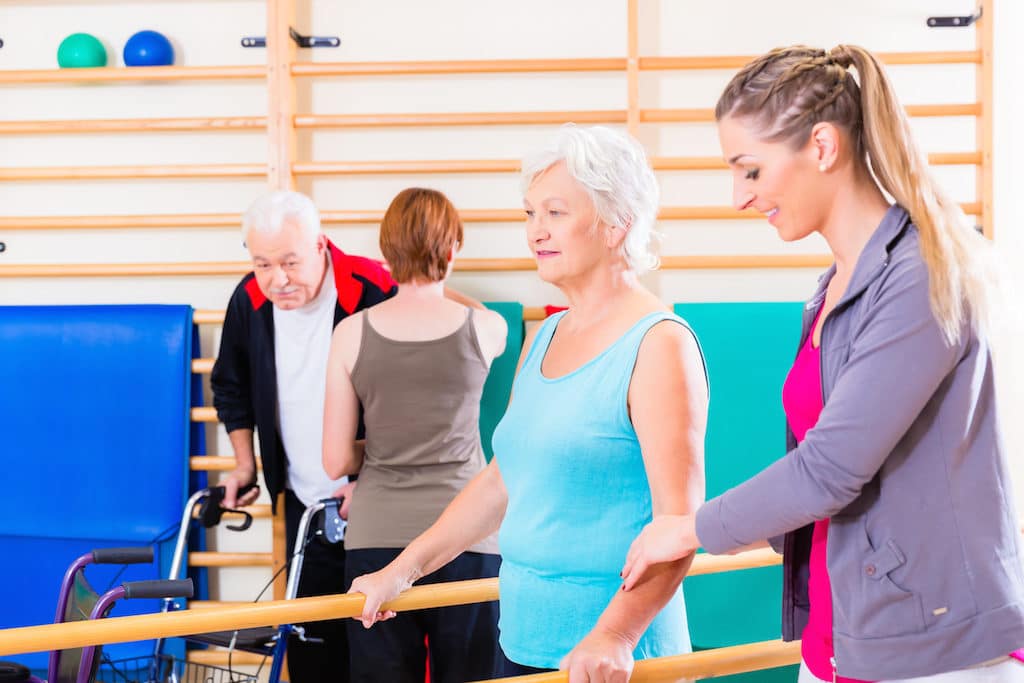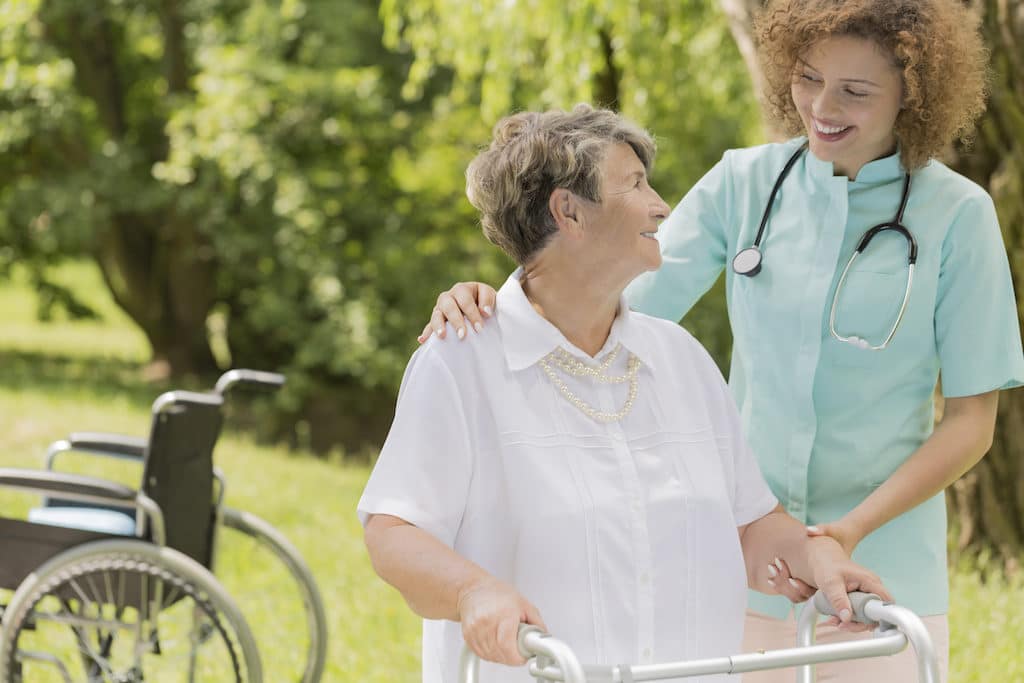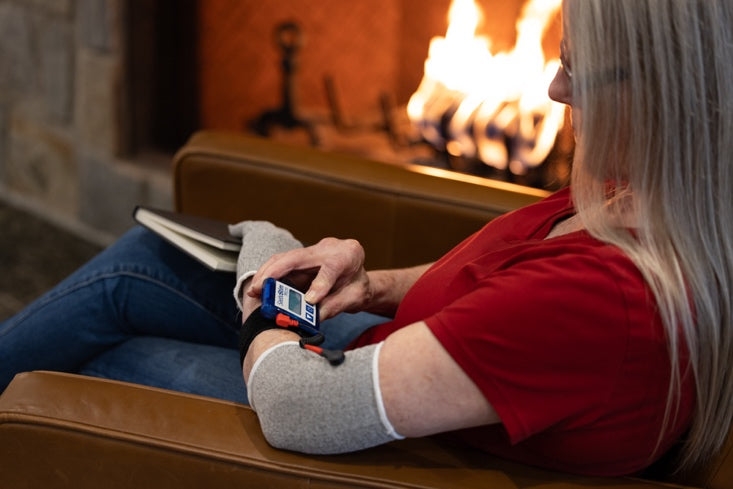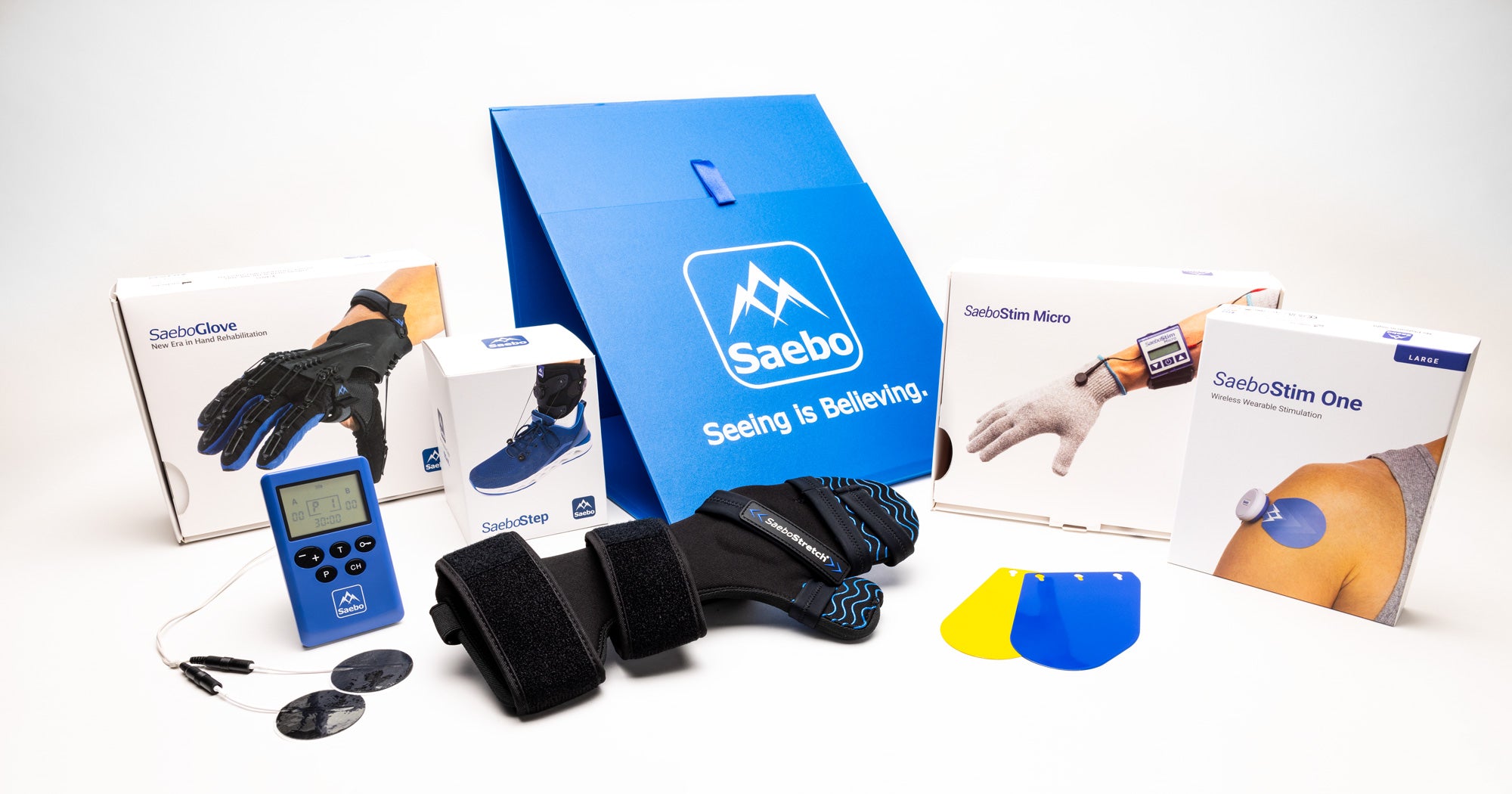6 Tips for the Stroke Caregiver


After a loved one has a stroke, many people today are choosing to take on the role of their caregiver rather than hiring someone else to do it. In fact, in the U.S. more than 50 million people are providing care for a loved one with a disability or illness. While many family caregivers find the experience positive and appreciate being able to help, it is still a huge challenge that comes with many new responsibilities.
When your life becomes centered around caring for another person, it can be easy to forget to take care of yourself. However, there is no need for caregivers to feel obligated to do everything by themselves. There are numerous resources for caregivers and places they can go to ask for help. These tips will help caregivers be more prepared for the road ahead while still thinking of their own quality of life.
Top 6 Tips for Stroke Caregivers
1. Talk to the Healthcare Team

In the first few weeks, you will be bombarded with new information about your loved one’s condition. Use this time to learn everything you can about their specific condition and the level of care they might need. Your healthcare team should be happy to answer any questions you may have and enable you to take an active role in the recovery process.
Keep track of your loved one’s medical appointments so you can accompany them, and bring a list of questions. Talk to your loved one ahead of time to see if they have any questions they might be too scared or too sensitive to ask. If your hospital offers any support groups, attend those as well to learn from other stroke survivors and caregivers. The more you’re able to learn, the better the care you can provide.
2. Assess Your Finances

Having a stroke can be costly even with health insurance or medicaid. To figure out exactly what the out-of-pocket cost will be for your loved one’s stroke, contact your insurance company. If health insurance will not pay for your loved one’s care, you can file an appeal. Navigating the healthcare system after a stroke can be complicated. The Patient Advocate Foundation can make the process easier, as can your hospital’s social service department or case manager.
Caregiving itself can also be a financial strain. Your loved one is already missing work, so you are losing one source of income. If you have to miss work in order to care for your loved one, it can be an additional strain. Should you be unable to take enough time off to care for your loved one, consider seeking professional health care services.
3. Participate in Rehabilitation

The majority of improvements happen within the first six months of stroke recovery, so it is important that your loved one start rehabilitation as soon as possible after their stroke. Attending your loved one’s therapy sessions can help you support them in their recovery. You should also ask the therapist if there are ways you can assist with their rehabilitation at home, such as assisting them with at-home exercises.
While offering support can be helpful, it is important not to help too much during rehabilitation sessions. You should also encourage your loved one to be more independent as long as they can safely perform the task. Accomplishing small personal goals can help them feel more confident. Any way you can empower your loved one to complete a task themselves, may encourage their self reliance.
4. Monitor Their Behavior and Mood

A stroke is a traumatic event that comes with huge life changes, so it is no surprise that a stroke survivor might struggle with difficult emotional changes. While an emotional response after a stroke is natural, some emotional difficulties, like depression, can inhibit recovery. Over 50 percent of stroke survivors suffer from depression after their stroke. Depression can hinder a stroke survivor’s recovery both physically and emotionally. If your loved one is showing signs of depression, speak to their doctor immediately.
Supporting your loved one emotionally is an important part of being a caregiver. Encourage them to share their feelings with you, and be there to listen. Consider joining a support group for other caregivers to get tips on how to provide support. You can also encourage your loved one to join a group for other stroke survivors. Talking to people who have been through a similar experience may be helpful.
5. Promote a Healthy Lifestyle

After having a stroke, one in 12 people will likely have a second one. A stroke can reveal health issues that have been building up for some time, and getting on a healthier track can be the difference between relapse and a healthy future. While there are genetic risk factors for stroke that cannot be altered, many lifestyle risk factors can be addressed.
Being active is an important part of stroke prevention. Your health care team should be able to help build a workout routine that is tailored to your loved one’s capabilities. Eating a healthy, low-fat diet is also important. Healthy eating can lower cholesterol and reduce inflammation. Alcohol intake should also be limited. If your loved one is a smoker, they should quit immediately as it could double their risk of having a stroke. It is important to help your loved one stay on track with medications and doctor appointments as well.
6. Don’t Forget to Take Care of Yourself

As a caregiver you may feel the need to do everything for your loved one, but it is important to set aside time for yourself as well. Caregivers can feel isolated, overwhelmed, and are also at risk for depression. Taking care of yourself is important for both you and your loved one. It is hard to provide good care when you are not in a good place yourself.
There are a number of resources available that can help caregivers who are feeling overwhelmed. Your health care team should be able to provide you with recommendations for local support groups and respite care services. You can also reach out to family members and friends to ask for assistance. Never feel guilty asking for help or taking time for yourself. Your health is important too.
Caring for a Loved One and Yourself
Caregivers are the unsung heroes of stroke recovery. Day after day, millions of people set aside their own needs in order to help their loved ones navigate finances, rehab, doctor visits, and emotional uncertainties. As a caregiver, you are a pillar of support.
As important as family caregivers are to stroke patients, it is equally important that caregivers never forget to take care of themselves. Being a good caregiver does not mean giving up your life. Balancing your own needs and your loved one’s is possible.
All content provided on this blog is for informational purposes only and is not intended to be a substitute for professional medical advice, diagnosis, or treatment. Always seek the advice of your physician or other qualified health provider with any questions you may have regarding a medical condition. If you think you may have a medical emergency, call your doctor or 911 immediately. Reliance on any information provided by the Saebo website is solely at your own risk.
All content provided on this blog is for informational purposes only and is not intended to be a substitute for professional medical advice, diagnosis, or treatment. Always seek the advice of your physician or other qualified health providers with any questions you may have regarding a medical condition. If you think you may have a medical emergency, call your doctor or 911 immediately. Reliance on any information provided by the Saebo website is solely at your own risk.



